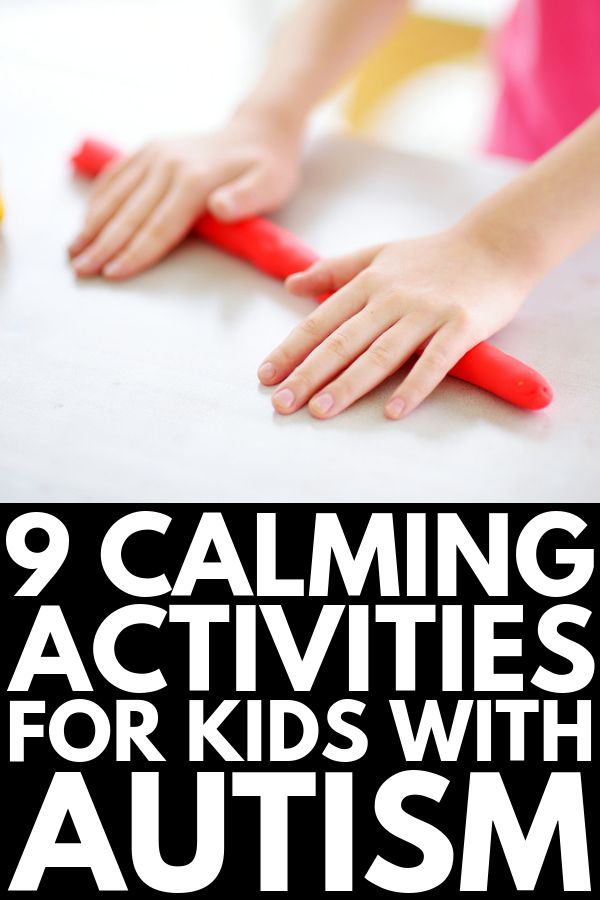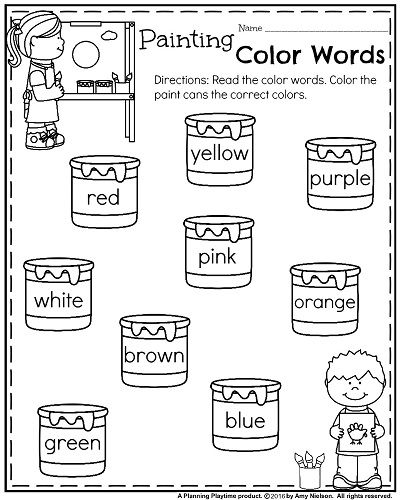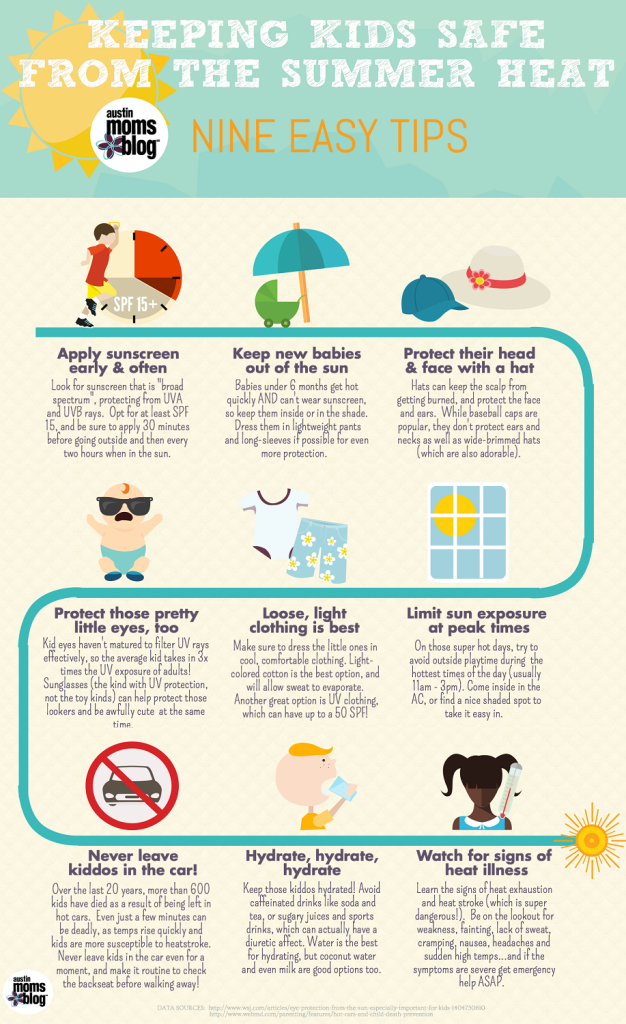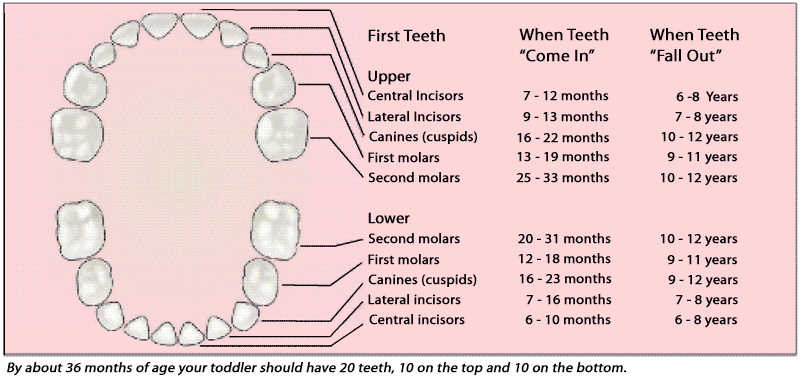How to help an autistic child through a meltdown
When My Son With Autism Melts Down, Here’s What I Do
Health and wellness touch each of us differently. This is one person’s story.
I sat in the child psychologist’s office telling her about my six-year-old autistic son.
This was our first meeting to see if we would be a good fit to work together toward an evaluation and formal diagnosis, so my son wasn’t present.
My partner and I told her about our choice of home-schooling and how we’ve never used punishment as a form of discipline.
As the meeting continued, her brows became hawklike.
I could see the judgment in her expression when she began a monologue about how I needed to force my son to go to school, force him into situations that make him extremely uncomfortable, and force him to socialize regardless of how he feels about it.
Force, force, force.
I felt like she wanted to stuff his behaviors into a box, then sit on top of it.
In reality, each and every autistic child is so unique and different from what society deems typical. You could never fit their beauty and quirkiness into a box.
We declined her services and found a better fit for our family — for our son.
I’ve learned from experience that trying to force independence is counterintuitive, whether or not your child is autistic.
When we push a child, especially one prone to anxiety and rigidity, their natural instinct is to dig their heels in and hold on tighter.
When we force a child to face their fears, and I mean screaming-on-the-floor petrified, like Whitney Ellenby, the mother who wanted her autistic son to see Elmo, we aren’t actually helping them.
If I was forced into a room full of spiders, I would probably be able to detach from my brain at some point to cope after about 40 hours of screaming. That doesn’t mean I had some kind of breakthrough or success in facing my fears.
I also assume I’d store those traumas and they’d invariably be triggered later in my life.
Of course, pushing independence isn’t always as extreme as the Elmo scenario or a room full of spiders.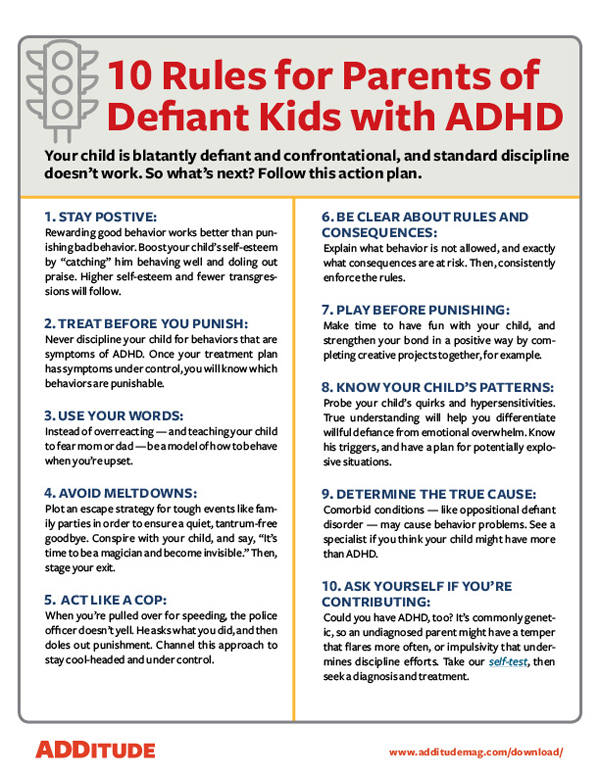 All of this pushing falls on a spectrum ranging from encouraging a hesitant child (this is great and should have no strings attached to the outcome — Let them say no!) to physically forcing them into a scenario that has their brain screaming danger.
All of this pushing falls on a spectrum ranging from encouraging a hesitant child (this is great and should have no strings attached to the outcome — Let them say no!) to physically forcing them into a scenario that has their brain screaming danger.
When we let our children get comfortable at their own pace and they finally take that step of their own volition, true confidence and security grows.
That said, I understand where the Elmo mom was coming from. We know our kids would enjoy whatever activity if they would just try it.
We want them to feel joy. We want them to be brave and full of confidence. We want them to “fit in” because we know what rejection feels like.
And sometimes we’re just too damn tired to be patient and empathetic.
But force isn’t the way to achieve joy, confidence — or calm.
When our child has a meltdown, parents often want to stop the tears because it hurts our hearts that our kids are struggling. Or we’re running low on patience and just want peace and quiet.
Many times, we’re coping with the fifth or sixth meltdown that morning over seemingly simple things like the tag in their shirt being too itchy, their sister talking too loudly, or a change in plans.
Autistic children aren’t crying, wailing, or flailing to get at us somehow.
They’re crying because it’s what their bodies need to do in that moment to release tension and emotion from feeling overwhelmed with emotions or sensory stimulations.
Their brains are wired differently and so it’s how they interact with the world. That’s something we have to come to terms with as parents so we can support them in the best way.
So how can we effectively support our children through these often loud and thrashing meltdowns?
1. Be empathetic
Empathy means listening and acknowledging their struggle without judgment.
Expressing emotions in a healthy way — whether through tears, wailing, playing, or journaling — is good for all people, even if these emotions feel overwhelming in their magnitude.
Our job is to gently guide our kids and give them the tools to express themselves in a way that doesn’t hurt their body or others.
When we empathize with our kids and validate their experience, they feel heard.
Everyone wants to feel heard, especially a person who frequently feels misunderstood and a little out of step with others.
2. Make them feel safe and loved
Sometimes our children are so lost in their emotions that they can’t hear us. In these situations, all we need to do is simply sit with or be near them.
Many times, we try to talk them down from their panic, but it’s often a waste of breath when a child is in the throes of a meltdown.
What we can do is let them know that they’re safe and loved. We do this by staying as near to them as they’re comfortable with.
I’ve lost track of the times that I’ve witnessed a crying child be told that they can only come out of a secluded space once they stop melting down.
This can send the message to the child that they don’t deserve to be around the people that love them when they’re having a hard time. Obviously, this isn’t our intended message to our kids.
Obviously, this isn’t our intended message to our kids.
So, we can show them we’re there for them by staying close.
3. Eliminate punishments
Punishments can make children feel shame, anxiety, fear, and resentment.
An autistic kid can’t control their meltdowns, so they shouldn’t be punished for them.
Instead, they should be allowed the space and freedom to cry loudly with a parent there, letting them know they’re supported.
4. Focus on your child, not staring bystanders
Meltdowns for any child can get noisy, but they tend to go to a whole other level of loud when it’s an autistic child.
These outbursts can feel embarrassing to parents when we’re in public and everyone is staring at us.
We feel the judgment from some saying, “I’d never let my kid act like that.”
Or worse, we feel like our deepest fears are validated: People think we’re failing at this whole parenting thing.
Next time you find yourself in this public display of chaos, ignore the judgmental looks, and quiet down that fearful inner voice saying you’re not enough. Remember that the person who is struggling and needs your support the most is your child.
Remember that the person who is struggling and needs your support the most is your child.
5. Break out your sensory toolkit
Keep a few sensory tools or toys in your car or bag. You can offer these to your kid when their mind is overwhelmed.
Kids have different favorites, but some common sensory tools include weighted lap pads, noise-cancelling headphones, sunglasses, and fidget toys.
Don’t force these on your child when they’re melting down, but if they choose to use them, these products can often help them calm down.
6. Teach them coping strategies once they’re calm
There isn’t much we can do during a meltdown as far as trying to teach our children coping tools, but when they’re in a peaceful and rested frame of mind, we can definitely work on emotional regulation together.
My son responds really well to nature walks, practicing yoga daily (his favorite is Cosmic Kids Yoga), and deep breathing.
These coping strategies will help them calm down — perhaps before a meltdown — even when you aren’t around.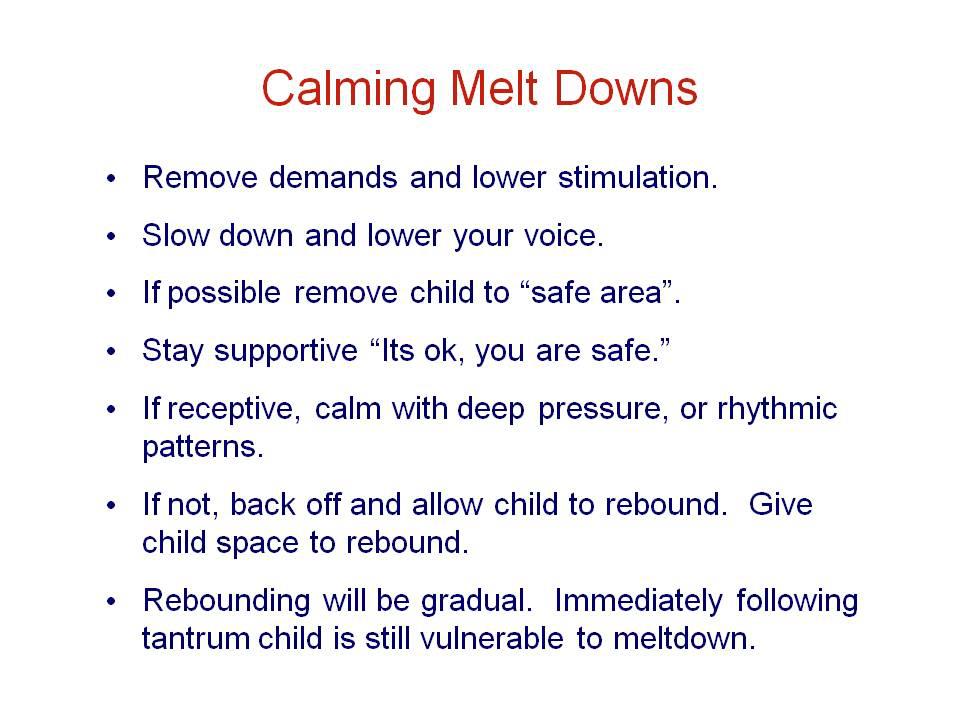
Empathy is at the heart of all of these steps to dealing with an autistic meltdown.
When we look at our child’s behavior as a form of communication, it helps us view them as struggling instead of being defiant.
By focusing on the root cause of their actions, parents will realize that autistic kids might be saying: “My stomach hurts, but I can’t understand what my body is telling me; I’m sad because kids won’t play with me; I need more stimulation; I need less stimulation; I need to know that I’m safe and that you’ll help me through this torrential downpour of emotions because it scares me too.”
The word defiance can drop from our meltdown vocabulary entirely, replaced by empathy and compassion. And by showing our children compassion, we can more effectively support them through their meltdowns.
Share on Pinterest
Sam Milam is a freelance writer, photographer, social justice advocate, and mother of two. When she isn’t working, you might find her at one of the many cannabis events in the Pacific Northwest, at a yoga studio, or exploring coastlines and waterfalls with her kids.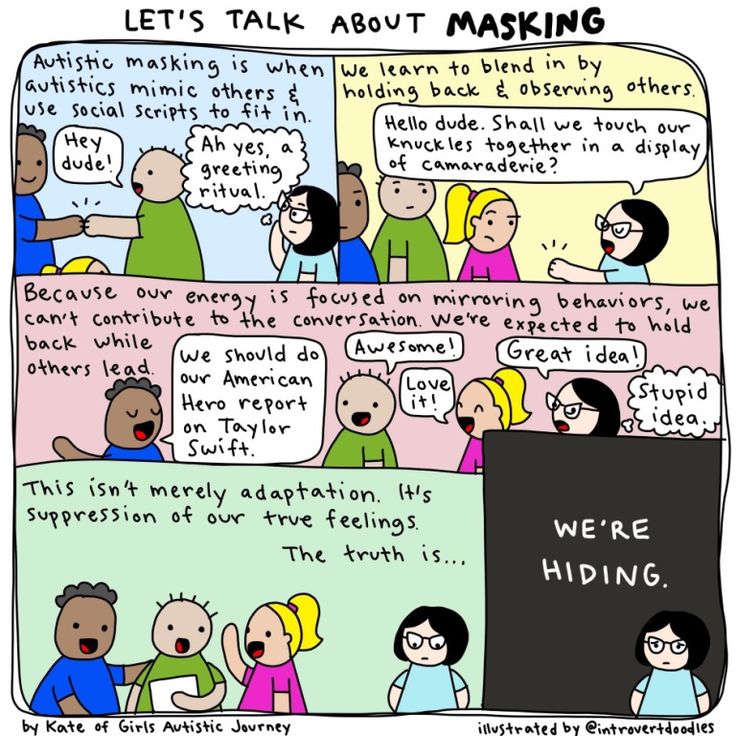 She’s been published with The Washington Post, Success Magazine, Marie Claire AU, and many others. Visit her on Twitter or her website.
She’s been published with The Washington Post, Success Magazine, Marie Claire AU, and many others. Visit her on Twitter or her website.
How to Calm an Autistic Child During a Meltdown
It can get difficult to manage tantrums and meltdowns. Parents and caregivers who experience this, often wonder how to calm their autistic child.
We wanted to gather some information on what are meltdowns and tantrums, and how to deal with them.
What are the Causes of Meltdowns for Children with Autism?
We should first define what meltdown actually is. A meltdown is an intense response to overwhelming situations by the person.
This could happen when an individual is overwhelmed by the current situation. It could cause loss of control.
This can be exhibited in different manners. The loss of control shows through verbal expressions like yelling or crying, or it can be physical like kicking or biting.
There are cases where the response could be in both ways.
Here would be a good place to point out that autism meltdowns and temper tantrums are actually not the same thing.
When you are looking into ways on how to calm an autistic child, you may come across tantrums as well.
There may be a couple of underlying reasons for having a meltdown. It can be triggered by so many different problems.
The key to understanding how to calm an autistic child lies with understanding what it is that triggers the behavior.
The following are some of the common causes of meltdowns:
-
ADHD: Lack of focus or inability to tolerate boredom can contribute to outbursts
-
Learning issues: A learning disorder could cause frustration and lead to meltdowns
-
Anxiety: This is another major contributor. A child can get overwhelmed when faced with uncomfortable situations.
-
Sensory issues: Sensory issues cause children to feel overwhelmed which leads to meltdowns.

-
Lack of skills to handle situations: Children who lack the skills to cope with certain situations or emotions could experience meltdowns.
Meltdowns are not the only way that an individual with autism can show they are overwhelmed.
Less obvious ways include refusal to interact, or withdrawing oneself from challenging situations.
What is the Difference Between Meltdown and Tantrum?
They may seem similar on the outside. Externally, meltdowns and tantrums look really alike. But there are in fact differences between the two.
Tantrums can be seen in younger children as __willful__ behaviors. Not that children plan to frustrate their parents or caregivers, but they want to express their frustration.
However, a meltdown can be experienced throughout life. While tantrums tend to go away as the child gets older, meltdowns may never go away.
It is important to note that children with autism can, of course, have classic temper tantrums. But, understanding the difference between tantrums and meltdowns can provide great insight.
But, understanding the difference between tantrums and meltdowns can provide great insight.
Tantrums can be resolved through a certain kind of response, while the same response can overwhelm the child during a meltdown.
If you are looking for ways on how to calm an autistic child, understanding the difference between meltdowns and tantrums can come in handy.
There are a couple of ways to figure out the difference between the two:
Audience: When ignored, tantrum behavior usually stops . Or when the child gets what they want, they may stop the behavior. But an autistic meltdown will occur regardless of an audience, as it is a response to an overload of external stimuli causing emotional explosion. This could even happen when they are alone.
Angry vs. Overwhelmed: Tantrums stem from being angry or frustrated. But autistic meltdowns are generally a reaction to being overwhelmed. Autistic individuals can’t control their meltdowns. Strategies like hugs, incentives or distractions that work on tantrums will not be beneficial for meltdowns.
Strategies like hugs, incentives or distractions that work on tantrums will not be beneficial for meltdowns.
Getting What They Want: Tantrums could be goal oriented. This means that a tantrum in a young child is typically a result of getting what they want. This could be a toy or not doing a certain routine or eating only a certain type of food. These tantrums can be more frequent when the child is tired or not feeling well, but there is generally a goal behind it.
However, autistic meltdown is caused by being overwhelmed.
Triggers include:
- Sensory overload
- Emotional overload
- Informational overload
The external behaviors like crying or yelling similar to tantrums may occur. Or they can completely shut down.
What Do Meltdowns Look Like?
Meltdowns can look different .) in each autistic person. The individual can withdraw, shut down, zone out, stare into space, or fall into repetitive movements.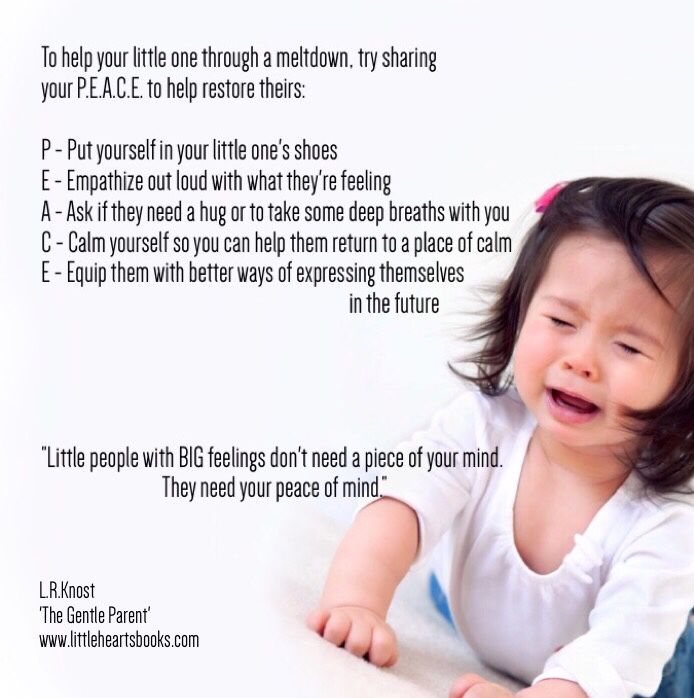
They may also cry uncontrollably, scream, growl, bite, curl up into a ball.
Many individuals with autism will show signs of distress before having the meltdown. This is called the “ rumble state ”.
To calm themselves down, the individual may:
- Start pacing around,
- Ask repetitive questions,
- Rock back and forth,
- Become very still.
This could be the window to prevent a meltdown.
What Do Tantrums Look Like?
Tantrums differ from one child to another. They can be spectacular explosions of anger.
The child may “lose it” with frustration and disorganized behavior.
During tantrums , the child may cry, stiffen up, scream, kick things around, fall down or run away. Some children hold their breath, and some even vomit.
They may break things around the house. Children with autism could get aggressive when they are throwing a tantrum fit.
This is how autistic children may express their frustration with the challenges that they are facing.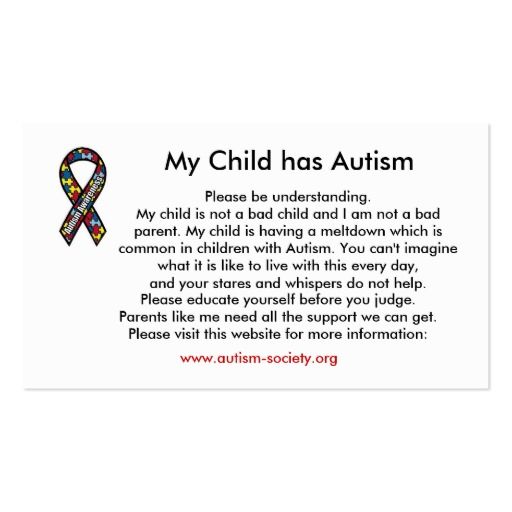
Thirst , hunger, tiredness: Some examples that can lead to tantrums.
When they get frustrated, they get angry. And when they get angry, they can throw a tantrum.
Come along with 200k+ families!
Let's communicate better!
Download for Free.
Certified speech therapy app
designed with SLPs.
Otsimo Speech Therapy
Download for Free
How to Calm Down an Autistic Child During a Meltdown?
A meltdown is generally a reaction by the individual as they are overwhelmed. The first thing in learning how to calm an autistic child is to identify what is actually overwhelming for them.
By identifying the trigger, the meltdowns could be prevented later on. Keep a diary to see if meltdowns occur at particular times or places. However, there are also things to try while the autistic child is having a meltdown to calm them down. Here are some tips and strategies:
-
Have a calming routine: Although the meltdown could drain them of energy; having a calming routine in place for the autistic child could help them calm down further.
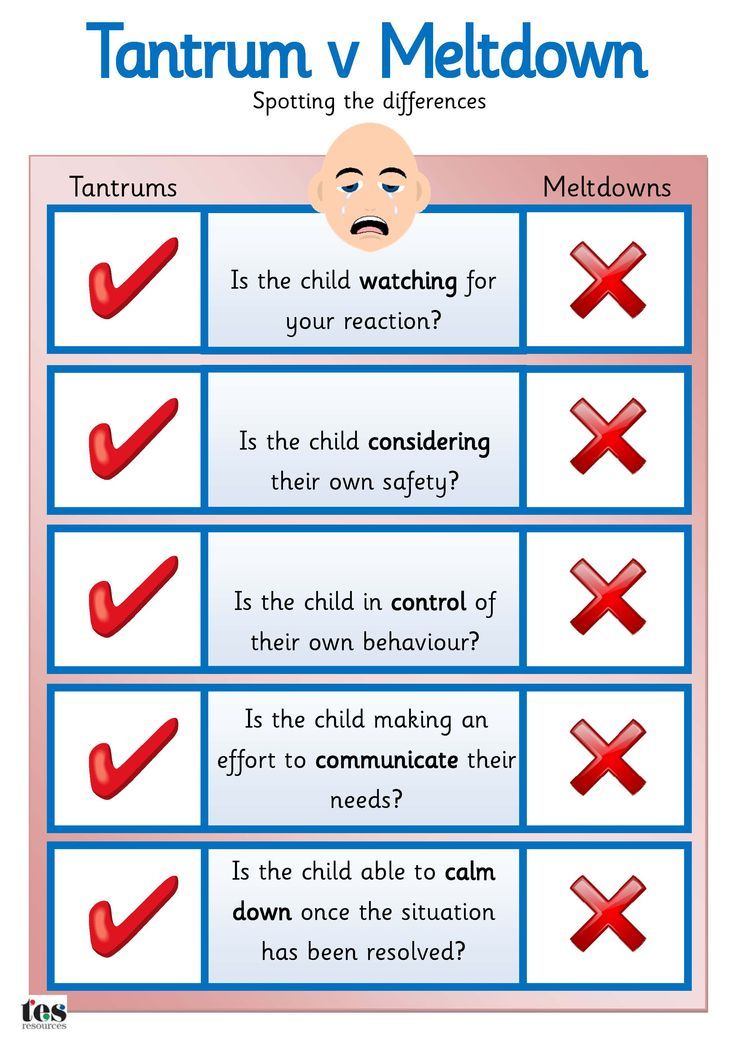 This routine could include certain visuals that the child likes or music, or a weighted blanket they like.
This routine could include certain visuals that the child likes or music, or a weighted blanket they like. -
Safety first: Meltdowns may unintentionally hurt both the child and others around them. Children with autism may, for instance, fall or hit their heads, or they could hit you or bite you. It may be a good idea to have a strategy in place to make it safe for the duration of the meltdown.
-
Keep a diary: Taking notes on when and where the meltdown occurs could help in preventing future ones. This could also be helpful in that you can see the signs of meltdown beforehand and start the calming routine to de-escalate the situation. If you understand what triggers meltdowns, you may be able to stop it beforehand.
-
Try to stay calm: It is important that you are not adding stress and escalating the situation more while your child is having a meltdown. They are tough, but meltdowns are part of autism.
 The best way to help is to learn to cope with them and have a strategy at hand.
The best way to help is to learn to cope with them and have a strategy at hand. -
Use items: Sometimes calming devices like a fidget toy could alleviate the effects.
-
Don’t be logical: Don’t try to reason with your child when they are having a meltdown. They are going through a stressful time as it is and they can’t be reasoned with until the meltdown is over. Be patient.
-
Always be there: Make sure that you are within reach of your child in case they want you during meltdown. Keep a neutral face and try to be calm.
How to Handle a Meltdown in Public
This can happen to anyone. Parents and caregivers could be low on patience while also hurting for their struggling child.
Remember that autistic children do not have meltdowns and cry or flail just to get at you.They cry because they need to release tension from their bodies in some way. They are overwhelmed with emotions or sensory stimulations.
They are overwhelmed with emotions or sensory stimulations.
There are some ways to effectively support your child when they are having a meltdown in public. Here are some of them.
Equip them with coping skills: Meltdowns can’t be helped at that very moment. But afterwards, you can teach your child how to regulate their emotions. Try relaxing activities like going for walks. These calming activities will help them calm down even before the meltdown happens.
Feeling safe and loved: Trying to talk a child down from having a meltdown is not a great strategy when it comes to calm an autistic child. Be there for them. Let them know that they are safe at that moment. Stay close as much as their comfort allows. Don’t leave them alone to be out of a meltdown and find no one in the room. This could send a message that they don’t deserve to be around the people they love when it gets tough.
Empathy is key: Listen and understand their situation. Tell them expressing emotions is okay, and sometimes it can get overwhelming. If your child with autism can feel like they are being heard, they will feel that their experience is validated. Try to give them tools to express themselves in a safe way.
Tell them expressing emotions is okay, and sometimes it can get overwhelming. If your child with autism can feel like they are being heard, they will feel that their experience is validated. Try to give them tools to express themselves in a safe way.
Don’t punish: Punishment will get you nowhere. They can make your child feel more ashamed or afraid. They can’t control their meltdowns, so they should not be punished. Allow them the opportunity and space to feel their feelings and let them know you are there to support them along the way.
Have a sensory toolkit: You can keep a couple of sensory toys in your bag when you are going out. These will keep the mind of your child occupied when they are overwhelmed. Try not to force these to the child during meltdown.
What to Do When My Child is Having a Tantrum?
1. Tantrum vs. Meltdown
Before you intervene in any way, try to figure out whether your child is having an autism meltdown or tantrum.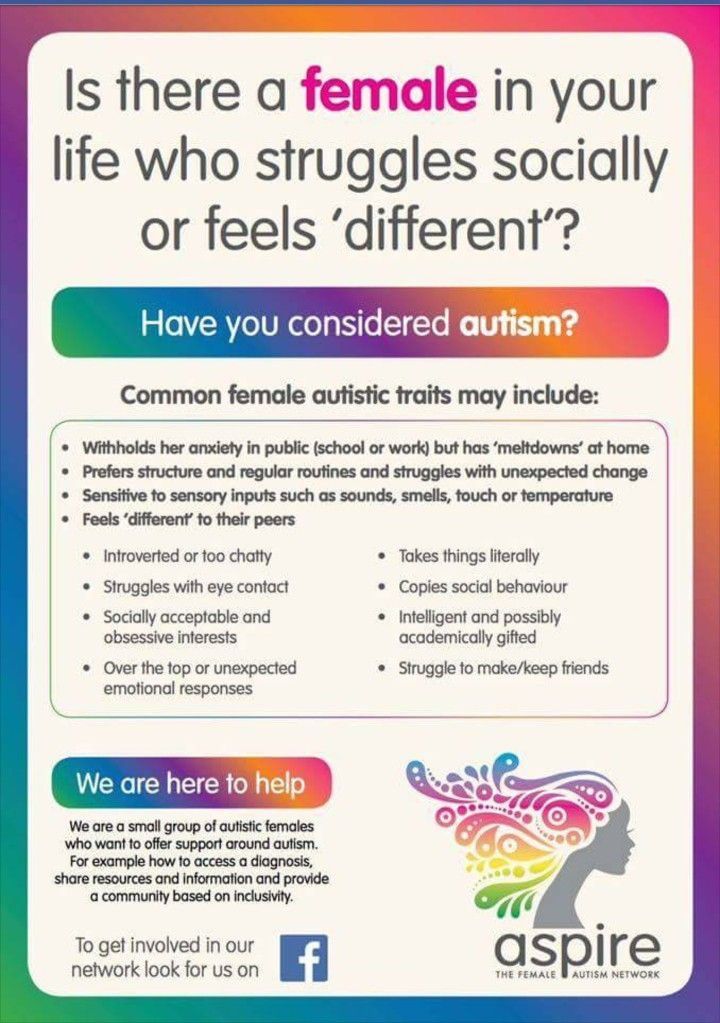 As we discussed earlier, they may look similar but they need different approaches.
As we discussed earlier, they may look similar but they need different approaches.
Meltdowns are a response to external stimulation, while tantrums can occur when a need is not being met.
It is important to distinguish the two before having a strategy to manage the situation.
2. Figure out the motivation
Understanding what lies behind the tantrum behavior will give you the key to manage it.
You will be able to respond to it more appropriately. They may want something, like a toy or attention. Recognize this want without giving it to them.
3. Remove the audience
Sometimes removing the audience from the environment, the tantrum will stop. If you noticed this pattern, like your child tends to have tantrums in crowded areas, teach them coping mechanisms in small gatherings.
Try removing yourself from the environment (but still being a place where they can see you). It could also help reduce and stop tantrum.
4. Praise and reinforce positive behavior
Praise and reinforce positive behavior
Acknowledge the feelings of your child and praise them for their good behavior.
You can give them a hug, or tell them how they managed to do the thing well. These will avoid tantrum outbursts as your child will learn that they have your attention and can be successful in doing things.
5. Build the necessary skills
We have discussed before that tantrums can be caused by lack of certain skills like problem solving or negotiating.
Try to create opportunities to build on skills related to:
- impulse control,
- communicating wishes and needs,
- self-soothing,
- problem solving,
- delaying gratification
- negotiation.
You can try practicing them after tantrums.
Sensory Tools for Meltdowns
You can prepare a toolkit to take anywhere you go, in your car or in your bag, consisting of sensory tools to utilize during meltdowns.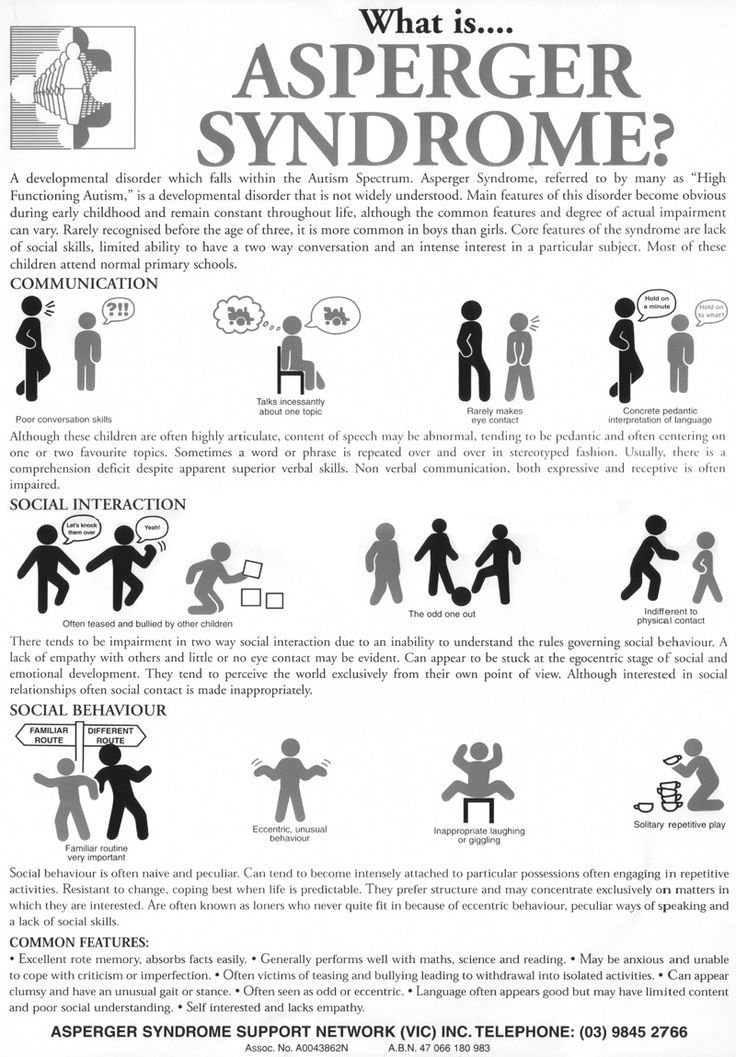 They will be able to help on some level. Here are some suggestions to put in your toolkit .
They will be able to help on some level. Here are some suggestions to put in your toolkit .
-
Noise-cancelling headphones. A pair of noise cancelling headphones can help calm an autistic child when the noise gets too loud for them.
-
Sunglasses. If your child has light sensitivity, a pair of sunglasses can help them when it is too sunny or the fluorescent lights are too bright.
-
Weighted blanket/lap pad. Pressure can be an answer to how to calm an autistic child. Weighted blankets and lap pads.
-
Snacks that are chewy or crunchy. Kids get crankier when they are hungry. Crunchy ones can help with oral proprioceptive input as a calming effect. Or if your child likes chewy snacks, they are another way to go.
-
Fidget toy. These are repetitive and simple tools that can offer calmness to your child when they get agitated.
-
Scented hand lotion.
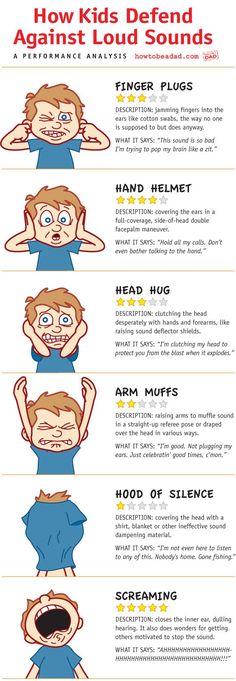 If some odors in the environment is too much for your child, you can use a hand lotion with a scent the child likes.
If some odors in the environment is too much for your child, you can use a hand lotion with a scent the child likes. -
Hand wipes. Children with tactile sensitivities can accidentally touch something that can irritate them. These unscented hand wipes may help with this.
Tips from Other Parents of Children with Autism
Not all meltdowns and tantrums look the same on all children. Some of the tips and tricks as well as strategies mentioned in this article may not be suitable for your child while they can be helpful to others.
Remember that you are not alone. Tantrums and meltdowns are common in children with autism. You can get inspiration or support from other parents who are also dealing with this same issue.
The first thing parents suggest is to understand the difference between tantrums and meltdowns. They have noticed that when their child is having a meltdown, there is usually a trigger. They try to make a safe environment, like taking the child to their room, so that the child will not hurt themselves.
From what the parents or caregivers explain, sometimes the child can also select a place like a dark closet to have a meltdown where no one can reach them. But the parents always stay close and when the child is more comfortable, they try to help and comfort their child.
In the case of tantrums, sensory overload is generally not an issue. You should be looking for the motivation behind the tantrums. Parents state that tantrums don’t last as long as the meltdowns. Reinforcement and praise of positive behavior at this stage helped a lot of parents.
A popular method for soothing the meltdown used by a lot of parents and caregivers is weighted blankets and pressure. These have proven to be effective in calming the child down. Some stated that as their child got older, they managed to teach the child breathing exercises as well to help them self-sooth.
Another tip from the parents is related to stimming. There are some stim toys and fidgets the child can use.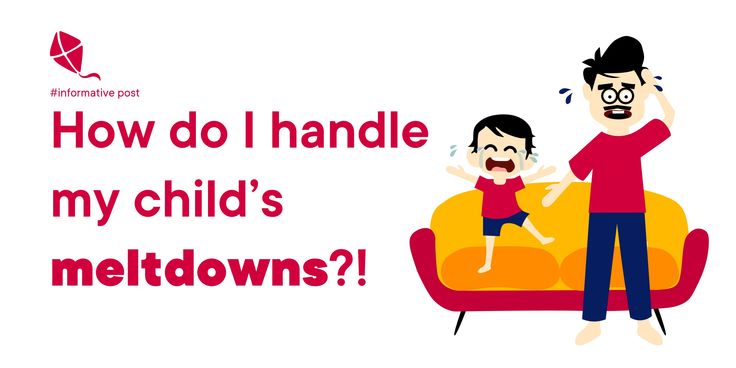 Make sure to keep a couple around and have them be something the child is interested in. Parents suggest that if you can catch the meltdown at its early stages with these stim and fidget toys, it becomes much easier to stop it.
Make sure to keep a couple around and have them be something the child is interested in. Parents suggest that if you can catch the meltdown at its early stages with these stim and fidget toys, it becomes much easier to stop it.
Parents or loved ones of the child with autism also have suggestions on making the environment safer for when the child is having a meltdown. You can remove items that can hurt them and cushion their surroundings by putting a pillow if they start to bang their heads. They suggest trying not to speak to them or touching them during the meltdown as this may make things worse.
Also, parents and caregivers state that children feel exhausted and embarrassed after the meltdown is over. Try to convey them that you understand how they feel and ask them if they want a cuddle or a glass of water.
You can also speak to your child about their feelings, and let them know it is okay to have those feelings.
Autistic adults on what could help children during a “tantrum”
11/01/20
Several adults on the spectrum about what could help them during their childhood “nervous breakdown”
Author: Ellen Stumbo / Ellen Stumbo
Source: The Mighty
Because I have two children with disabilities, some of my friends have different types of disabilities, or they also have children with disabilities.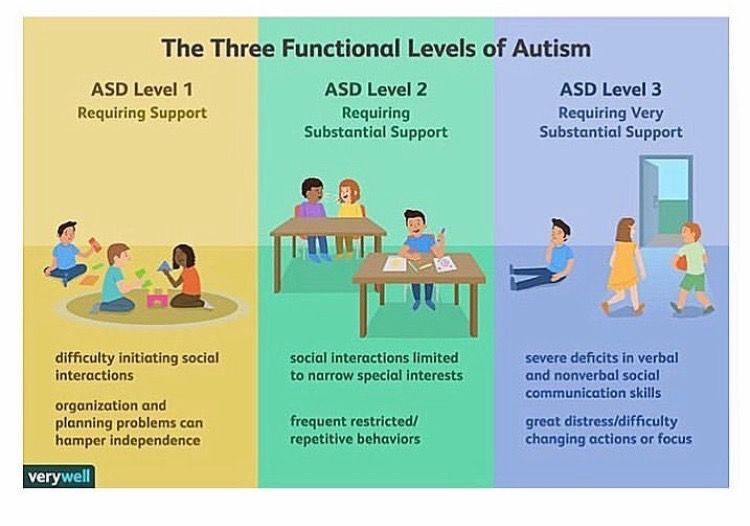 Nothing can replace the connection with other parents in a similar situation, but also, over time, I rely more and more on the recommendations of friends with experience of living with a disability. nine0003
Nothing can replace the connection with other parents in a similar situation, but also, over time, I rely more and more on the recommendations of friends with experience of living with a disability. nine0003
For example, one of my children has cerebral palsy and I turn to my friends with cerebral palsy for advice on how to help my daughter or how to talk about disability issues. I also have a good friend on the autism spectrum and he has been a resource for me in relation to autism. I believe that the personal experience of those who do live with a certain disability makes them experts. I learned a lot from them, and when I listened to their advice, it helped me become a better parent. nine0003
Not long ago I was listening to a conversation about autistic children and "tantrums". Parents discussed how best to help the child in such a situation. I had a question: “Has anyone asked an autistic person what helped him in childhood or now?” This situation again reminded me of the importance of listening to the voices of autistic adults with direct experience.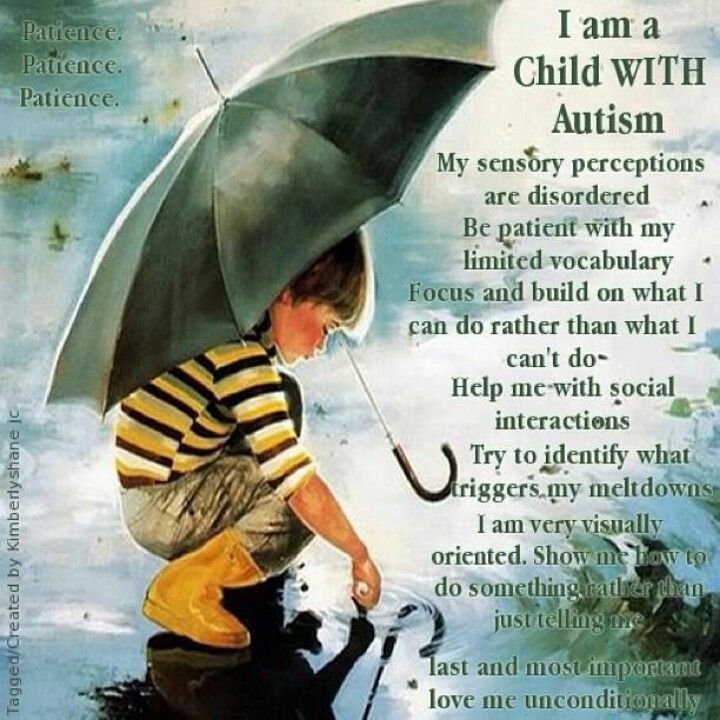
We ended up reaching out to the autism community, and I also reached out to my friend Carlyle, who runs an autism support group, and asked him to connect me with other autistic adults. We asked them the following questions: “As autistic adults, what advice would you give parents when it comes to having a nervous breakdown? What was helpful for you? What did you need? nine0003
Here are their answers:
1. “Please don't put your child in conditions that he cannot bear and then punish him for the behavior that followed. For example, do not take the child to where he is uncomfortable and demand that he behaves “normally”. The child is trying to communicate with you. Anger, discomfort, irritation, pain - the child wants to draw your attention to this and get help, there is no need to punish him for this. It is likely that a combination of factors caused the child's reaction, and he needs help understanding and expressing his emotions, as well as adjusting stimulation from the external environment.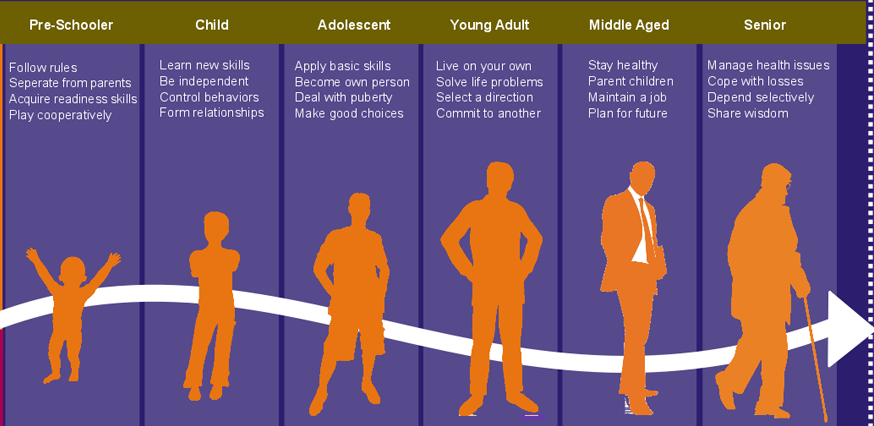 It is best to allow the child to rest in a cool, dark and quiet place (or otherwise reduce stimulation from the outside environment, such as with headphones, dark glasses, etc.). nine0010 Make sure the child is safe and does not pose a threat to himself or others, and allow him to process what happened. When he is ready for this, discuss with him what happened, calmly and rationally. After that, you can come up with some solutions together so that next time you can prevent this in a similar situation. And do not forbid the child to “stim”. It's a useful mechanism for us to help us deal with a difficult situation.” – Vanessa B.
It is best to allow the child to rest in a cool, dark and quiet place (or otherwise reduce stimulation from the outside environment, such as with headphones, dark glasses, etc.). nine0010 Make sure the child is safe and does not pose a threat to himself or others, and allow him to process what happened. When he is ready for this, discuss with him what happened, calmly and rationally. After that, you can come up with some solutions together so that next time you can prevent this in a similar situation. And do not forbid the child to “stim”. It's a useful mechanism for us to help us deal with a difficult situation.” – Vanessa B.
2. “Try to analyze exactly what happened before the breakdown. Has the situation caused too much overload? What happened before the breakdown? What happened during the most nervous breakdown? This is the best way to understand how to help and what is needed to prevent such cases. And be sure to practice how to act in such situations! Prevention does not give full guarantees, so practice of actions in such situations is necessary. If a nervous breakdown has occurred, then be calm, act as if nothing happened, nothing special, no "oh my God" and the like. Just allow what is already happening to happen, remain calm… If possible, move the person out of the situation to a quiet room or other place where the environment is calmer. Some people find it helpful to have a blanket or something to cover their head and/or body with. If you are in a place where a quiet place is not available, then stand directly in front of the child to fence him off with you, wait until the tantrum itself subsides. Stay calm, behave normally - it is important for a person during a nervous breakdown to see that you can be relied upon, this signals the brain that you can calm down, ”- Martina M.
If a nervous breakdown has occurred, then be calm, act as if nothing happened, nothing special, no "oh my God" and the like. Just allow what is already happening to happen, remain calm… If possible, move the person out of the situation to a quiet room or other place where the environment is calmer. Some people find it helpful to have a blanket or something to cover their head and/or body with. If you are in a place where a quiet place is not available, then stand directly in front of the child to fence him off with you, wait until the tantrum itself subsides. Stay calm, behave normally - it is important for a person during a nervous breakdown to see that you can be relied upon, this signals the brain that you can calm down, ”- Martina M.
3. “Try to leave a problem situation without waiting for a full-fledged nervous breakdown. What helps me personally is that if I feel like I'm going to snap, I try to go somewhere quieter as soon as possible.” – Ashley W.
4. “For me, there's a difference between 'sensory overload' and a nervous breakdown. In the first case, everything is more unpredictable, and it all depends on whether I can concentrate on any one subject. In the second case, I lose my temper, and everything happens quite predictably. But everything looks the same from the outside, although it feels different from the inside.” – Zachary D.
In the first case, everything is more unpredictable, and it all depends on whether I can concentrate on any one subject. In the second case, I lose my temper, and everything happens quite predictably. But everything looks the same from the outside, although it feels different from the inside.” – Zachary D.
5. “Don't tell children that they have to put up with unpleasant situations or that they ruin everything. We cannot control it. It's the same as if I tell you to stop hearing, or stop feeling pain, when your hand is pressed against a red-hot battery. They can't do anything about it, and chances are they already feel terrible or embarrassed about it! If they need to leave because something provokes such a reaction in them, if they need to be alone for a while, then please just let them do it. Perhaps they are already barely holding on, and if they "endure" any more, then this will lead to a big explosion, and, believe me, it will not end in anything good! Listen to them and let them avoid what causes them sensory overload.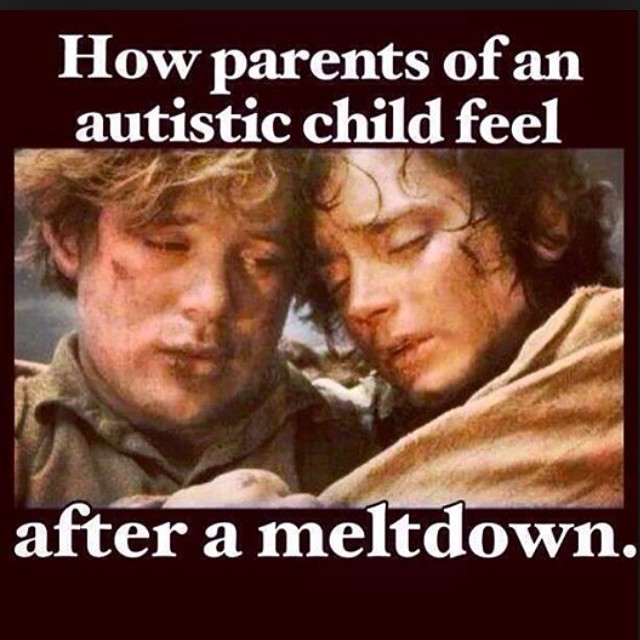 Think of people as plants. If a plant doesn't grow the way we want, we don't scream for it to grow differently - we change its environment, such as lighting, so that it has new opportunities for growth. It's the same with autistic people.” – Ruby V.
Think of people as plants. If a plant doesn't grow the way we want, we don't scream for it to grow differently - we change its environment, such as lighting, so that it has new opportunities for growth. It's the same with autistic people.” – Ruby V.
6. “Carry paper stickers to cover automatic sensors! It helps because it prevents the toilet from automatically flushing, it's like a superpower!" – Casey H.
7. “Many of my breakdowns were because I perceived my autism as something bad. Ask if the child would like to know more about autism and what it is. When I began to study this, I began to feel good about autism, not bad.” – Zachary D.
8. “Talking and threatening during a nervous breakdown does not help. My mom didn't know I was autistic and she spanked me and tried to punish me to stop the tantrum. Things only got worse, and my nervous breakdowns lasted for hours. This is not the same as whims, when a child wants to get something by screaming. We cannot control it. It will help if you just sit quietly and wait until we deal with this. Just don't say anything. Make sure we're safe, but let us handle it ourselves. You can't force us to stop a nervous breakdown. That will only hurt more. I don't think neurotypicals understand that we really hurt when we have a nervous breakdown. It is physical and emotional pain. When it's all over and we've already worked it out, then you can discuss with us what happened and what can be done to prevent it next time, which can help our body avoid escalation. Now that I'm an adult, my main recipe is a quiet place and a weighted blanket. Now I know what to look for to prevent a full-blown nervous breakdown, so I don't have them anymore. Rather, I can "disconnect" from what is happening around, or emotionally burn out. But this is my personal experience. All people are different. But this is what I myself needed as a child, and what I still need as an adult.” – Aime K.
It will help if you just sit quietly and wait until we deal with this. Just don't say anything. Make sure we're safe, but let us handle it ourselves. You can't force us to stop a nervous breakdown. That will only hurt more. I don't think neurotypicals understand that we really hurt when we have a nervous breakdown. It is physical and emotional pain. When it's all over and we've already worked it out, then you can discuss with us what happened and what can be done to prevent it next time, which can help our body avoid escalation. Now that I'm an adult, my main recipe is a quiet place and a weighted blanket. Now I know what to look for to prevent a full-blown nervous breakdown, so I don't have them anymore. Rather, I can "disconnect" from what is happening around, or emotionally burn out. But this is my personal experience. All people are different. But this is what I myself needed as a child, and what I still need as an adult.” – Aime K.
9. “Give the person a chance to take a break and calm down, find a place where there is no overstimulation, because overstimulation is the cause of a nervous breakdown.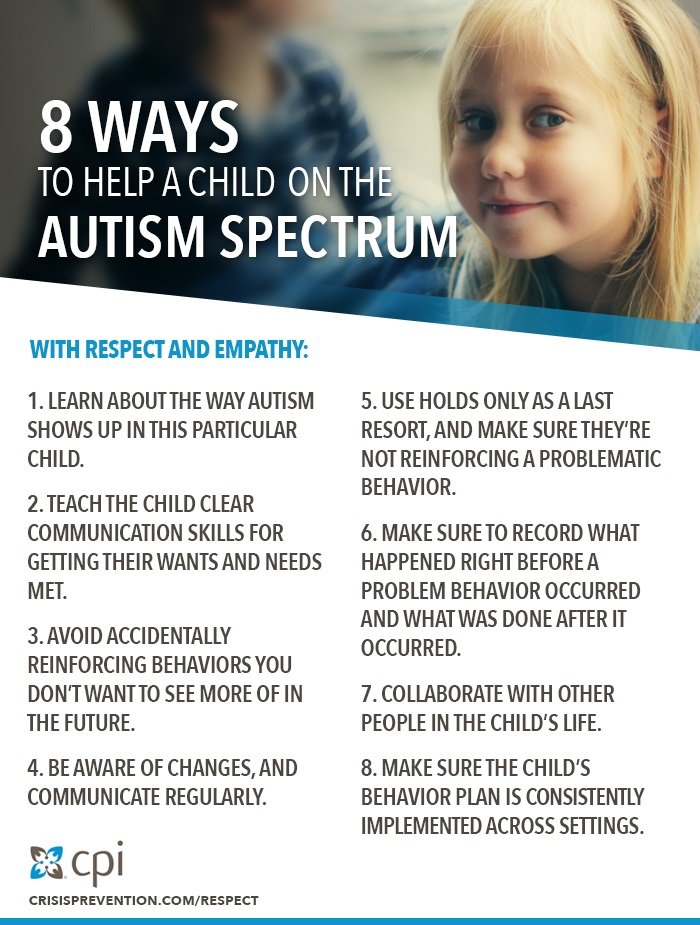 A person needs space and time to deal with it. It can be helpful to walk away and walk around to keep your balance. This year it didn’t happen to me, but until the age of 34 I had several nervous breakdowns a day, so it doesn’t depend on age, it’s something you have to live with and somehow cope with. Before adolescence, I had nervous breakdowns every day and even every hour, but I hardly remember what happened to me then. I only remember that I was very aggressive when I had a nervous breakdown, but now I know what to do and what works quickly.” – Jan B.
A person needs space and time to deal with it. It can be helpful to walk away and walk around to keep your balance. This year it didn’t happen to me, but until the age of 34 I had several nervous breakdowns a day, so it doesn’t depend on age, it’s something you have to live with and somehow cope with. Before adolescence, I had nervous breakdowns every day and even every hour, but I hardly remember what happened to me then. I only remember that I was very aggressive when I had a nervous breakdown, but now I know what to do and what works quickly.” – Jan B.
10. “Understanding and compassion. If possible, ask your child (or adult) in a calm tone what they need or don't need during a nervous breakdown. Everyone is very different, but a nervous breakdown causes a lot of stress, exhausting, and it can be very scary, plus, it's mental and physical pain. My children have limited speech, but we have learned through trial and error what can help them. My son needs space and time to be alone, and he needs some kind of physical release during a nervous breakdown. My daughter needs to be alone and in the dark, but sometimes videos on her tablet help her to get back together. During a particularly bad and prolonged nervous breakdown, she may need a firm hug and deep pressure stimuli, it also helps to quietly remind her that she is safe and everything is fine, and we are here if she needs us. But, first of all, and this applies to me and my children, we do not need punishment, downplaying our experience or condescending and contemptuous attitude. Breakdowns come from problems with self-regulation and over-stimulation, and in our home it is best to assess how much workload everyone has to ease or adapt as needed – for example, making extra time for stimming and self-care, this allows increase domestic resources.” – Shannon J.
My daughter needs to be alone and in the dark, but sometimes videos on her tablet help her to get back together. During a particularly bad and prolonged nervous breakdown, she may need a firm hug and deep pressure stimuli, it also helps to quietly remind her that she is safe and everything is fine, and we are here if she needs us. But, first of all, and this applies to me and my children, we do not need punishment, downplaying our experience or condescending and contemptuous attitude. Breakdowns come from problems with self-regulation and over-stimulation, and in our home it is best to assess how much workload everyone has to ease or adapt as needed – for example, making extra time for stimming and self-care, this allows increase domestic resources.” – Shannon J.
11. “It has always helped me to plan ahead for what I can control and try to keep anxiety to a minimum in advance. I'm used to fighting my social anxiety, but I try to choose situations that are really worth the fight. I also develop emergency strategies ahead of time, such as knowing where a quiet place is and how I can go there to be alone, or who I can turn to for support. It is very important. As a child, it would have helped me a lot if, for example, at family meetings, I had a predetermined quiet room in which to hide. ”- Carlisle K.
I also develop emergency strategies ahead of time, such as knowing where a quiet place is and how I can go there to be alone, or who I can turn to for support. It is very important. As a child, it would have helped me a lot if, for example, at family meetings, I had a predetermined quiet room in which to hide. ”- Carlisle K.
We hope that the information on our website will be useful or interesting for you. You can support people with autism in Russia and contribute to the work of the Foundation by clicking on the "Help" button.
POV, Asperger's Syndrome
People on the spectrum describe how they feel during a nervous breakdown
10/02/17
Mighty
"Why are you mad?"
"Calm down."
"What a capricious child, you need to be stricter with him."
"Here's a brat!"
"Some kind of psycho".
Unfortunately, people on the autism spectrum and their loved ones hear phrases like this all the time.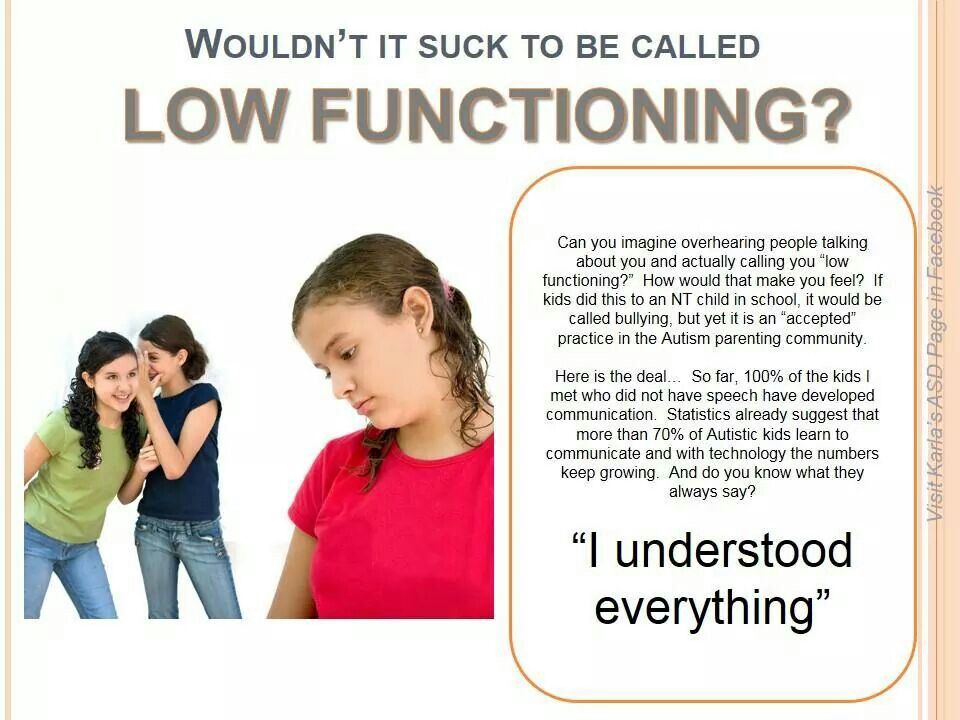 Why? Most often due to the experience of sensory overload, when their brain is not able to process too many signals from the outside world at the same time. Sensory overload can be triggered by a crowded crowd, too loud TV sound, strong smells, fluorescent lighting, or hundreds of other factors. Sensory overload can be caused not only by autism, but also by sensory processing disorder, chronic fatigue syndrome, fibromyalgia, post-traumatic stress disorder and other conditions, although anyone can experience it under certain conditions. Very often, a nervous breakdown becomes the only way to get rid of tension due to sensory overload. nine0003
Why? Most often due to the experience of sensory overload, when their brain is not able to process too many signals from the outside world at the same time. Sensory overload can be triggered by a crowded crowd, too loud TV sound, strong smells, fluorescent lighting, or hundreds of other factors. Sensory overload can be caused not only by autism, but also by sensory processing disorder, chronic fatigue syndrome, fibromyalgia, post-traumatic stress disorder and other conditions, although anyone can experience it under certain conditions. Very often, a nervous breakdown becomes the only way to get rid of tension due to sensory overload. nine0003
To an outside observer, it may seem that these are "whims" or "drawing attention."
Let's be clear: a nervous breakdown is not a whim, people don't choose to have a breakdown. Each person has their own techniques for preventing or surviving a nervous breakdown. Different mechanisms work for different people. But what exactly doesn't work? Judgmental looks, gestures and especially comments.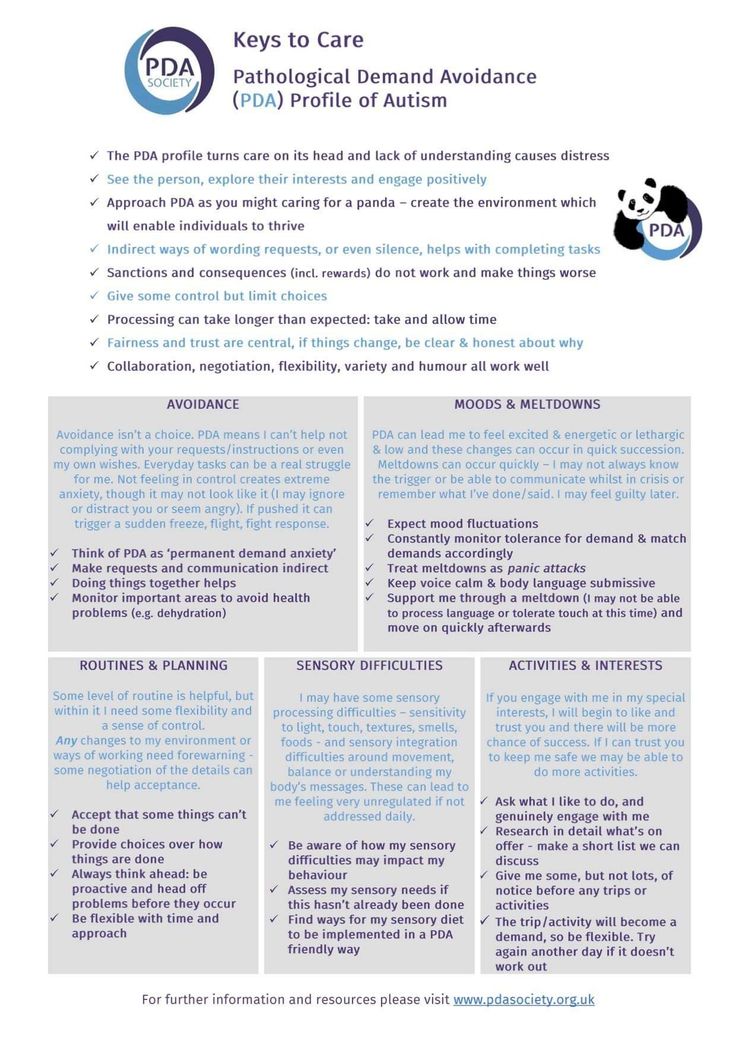 No one is going to blame you if you unknowingly confuse a nervous breakdown with being spoiled, we just want you to understand the difference. nine0003
No one is going to blame you if you unknowingly confuse a nervous breakdown with being spoiled, we just want you to understand the difference. nine0003
We asked several autistic people to describe how they feel during a nervous breakdown. We hope that their experience will help to achieve greater understanding and empathy.
1. “I literally feel like my head is bursting. The approach of a relapse becomes unbearable, but the relapse itself is just like... like your brain stops existing. Of course, this doesn't really happen, but I lose control of my muscles and my ability to speak, I can't modulate my voice or get my brain to signal my body to calm down. It’s like my brain… at the last minute sends a lot of energy to the rest of the body, but does not give instructions on what to do with this energy, so it overflows everything and gets out of control.” - Shaina G.
2. “It's like a volcano. It builds and builds and then explodes so fast, and there's fire everywhere that destroys everything until it's gone.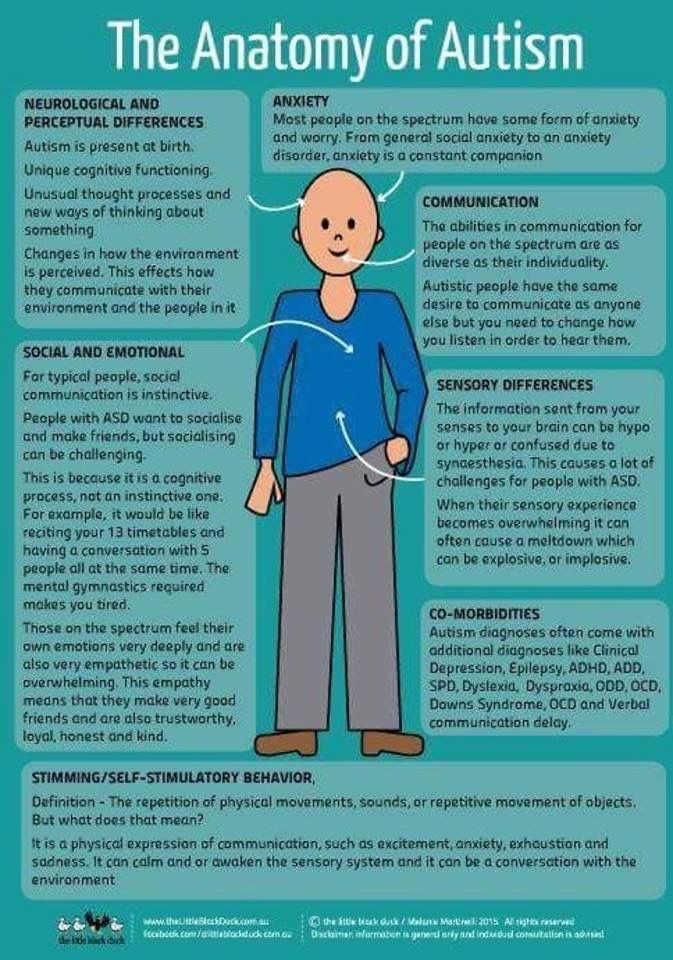 ” - Devra R.
” - Devra R.
3. “I feel trapped. I have a strange tension in my head or in my arms and I want to get rid of it. Everything around seems extremely real, as if I just emerged from the water, I feel a variety of emotions at the same time, and I want to run away from them all. I cease to understand what is decent and what is not, I begin to say what I do not mean, or what I wanted to say, but held back. Each time, everything ends up with everyone around being offended or confused. People think that because I "only" have Asperger's, I can't have nervous breakdowns, but I do. And I understand that they are not as "obvious" and "destructive" as my brother's, but I still have them. They tell me to “calm down,” but that only pisses me off even more, because I already understand it.” nine0003
“When the breakdown has 'passed', I can't explain what just happened, because it's only late in the evening (or later) that I can realize that I had a nervous breakdown. By the time I can come to that conclusion, it's already too late. Everyone has already forgotten what happened, or they don't care. I'll just look like I'm 'trying to get attention'" - Chi K.
Everyone has already forgotten what happened, or they don't care. I'll just look like I'm 'trying to get attention'" - Chi K.
4. "It's like self-control is slipping away from me—there is no more earth, air, or sky, just me and fear, rage, and despair. My bones vibrate, creak and crack. In the chest like a vacuum cleaner works. When I wake up, I have bruises, cuts and scratches, because I grab everything in order to return to the ground. By morning, the memories of the nervous breakdown are completely gone, I only vaguely remember the sensations. If I think about it too long, things will become too intense and I will have another nervous breakdown. I'm not ashamed that I'm autistic. I refuse to be ashamed of it. It defines who I am, but that doesn't mean other people can define it. But God, nervous breakdowns can not even be described. They are too big for my small body. Too big for this small planet. They hurt like sharp razors, but the pain is not on the skin, but in the soul.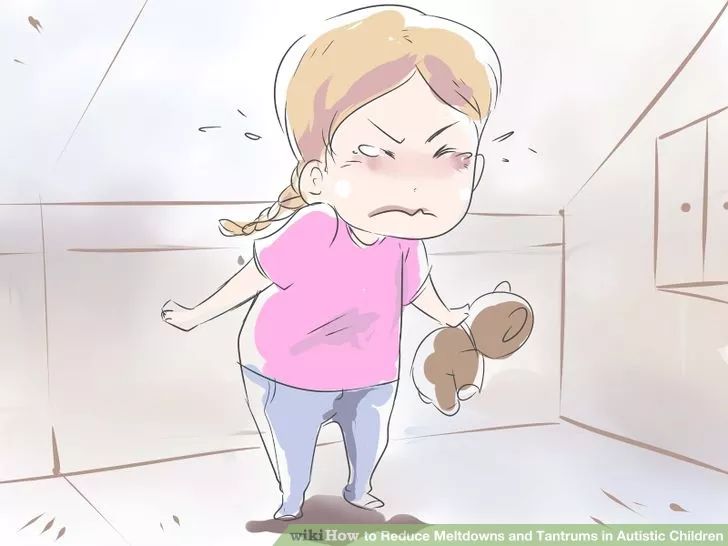 Your whole being turns inside out, and when people say “it's just noise”, “it's just an argument”, they don't really understand anything. And after all, very often the solution was quite simple. I often shouted about it. Just to stop this buzzing.” — Holly G.
Your whole being turns inside out, and when people say “it's just noise”, “it's just an argument”, they don't really understand anything. And after all, very often the solution was quite simple. I often shouted about it. Just to stop this buzzing.” — Holly G.
5. “Loss of control, almost like Jekyll and Hyde. I feel as if someone has flipped a switch in my brain and taken over my body, canceling all rational thoughts, reactions and communication. The blood is pounding in my head, everything seems too big to fit in it. Somewhere deep down there remains a small part of me that understands what is happening and wants to stop it, but cannot undo this system. My primitive reactions come to the fore, so I instinctively isolate myself and try to get away from all other living beings. Only then is it possible for me to breathe and begin to gradually calm down.” — Laura S.
6. “It seems like all the pressure that has built up in me (like in a soda bottle) bursts out and you can’t stop it, you lose control of yourself until this pressure is released, and then you fall asleep to restore strength.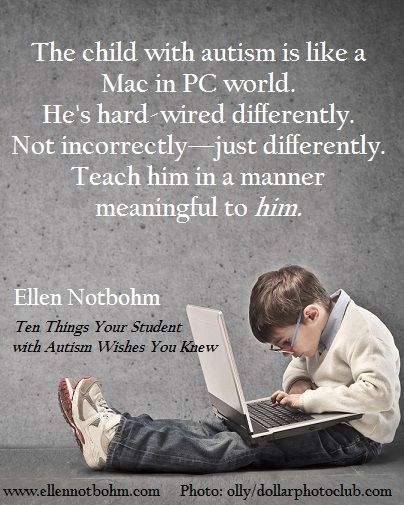 ” — Lauren G.
” — Lauren G.
7. “I completely lose control of my ability to regulate my emotions—the 'filter' disappears and I can no longer stop intrusive thoughts about anything that upsets me. Sometimes I have an uncontrollable desire to throw things, but this reduces my ability to communicate what the problem is. It's a vicious circle. I am not so much angry as scared, unable to speak or interact with the world, and I will have the need to hide from just a few hours. And after that, there is always complete exhaustion.” — Kim F.
8. “It's scary, as if you're leaving your body. I lose the ability to think or perceive what is happening and can only feel. And I feel everything. Every sound, every breeze. I want to scream, sometimes I really scream, just a scream without words. And all this time, I feel like I'm looking at myself from the outside, and this little part of me is still able to think rationally and think: “Why am I behaving like this? Calm down, pull yourself together!" But I can't control it.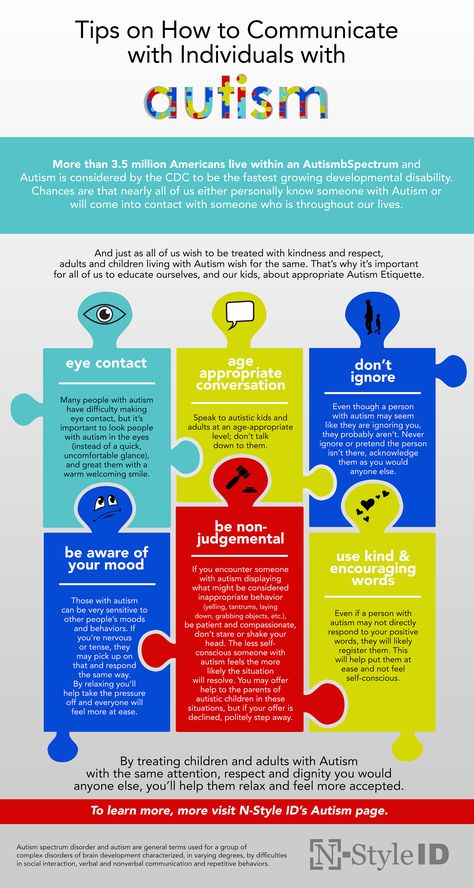 " — Tiffany D.
" — Tiffany D.
9. “Personally, for me it's a huge, all-consuming wave of emotions and sensory sensations that builds and builds, and then terribly hits you. I often start crying, angry, or both - others may be indignant or not understand what's wrong. I end up completely exhausted/burned out from head to toe, inside and out, unable to speak and sometimes even move. Sometimes I completely switch off and I can’t even formulate what I’m thinking about, but I can think about everything. I need time and a quiet place to calm down, away from people, where I can do my favorite repetitive activity, like painting / felting, which is very calming for me and helps me move from what I feel to thinking clearly and functioning normally again. ” , — Cathy S.
10. “I feel like I just want to be alone, and I usually do! I lock myself in my room or go wandering into the woods. When I tell my friends about it, they think I'm weird because I just don't want to see anyone.” – Kasper M.
11.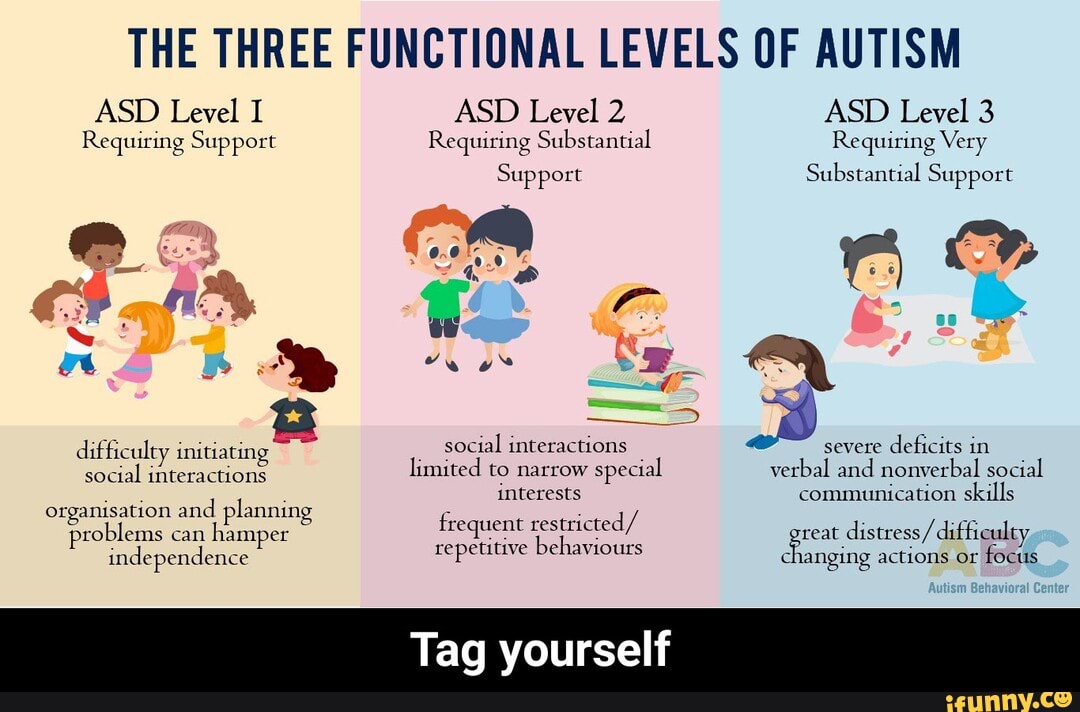 “It's very intense, extreme emotions start to build up at the same time. Sometimes it seems like the only way to calm down so it doesn't go on for hours is to hurt yourself, because pain helps to release extreme emotions.” — Katherine B.
“It's very intense, extreme emotions start to build up at the same time. Sometimes it seems like the only way to calm down so it doesn't go on for hours is to hurt yourself, because pain helps to release extreme emotions.” — Katherine B.
12. “I feel like I have a hundred voices in my head and everyone is talking at the same time and wanting to scream.” – Richard T. . It's like I'm no longer in control of myself. So I start crying, or choking, or both. I think about every problem I have, try to come up with a solution, I can't, and release all the emotions. I repeat this process until all emotions are gone. Sometimes I need help to stop this process (stimming, weighted blanket, etc.) or the escalation will continue. It's not fun at all and I don't like how it affects others, but sometimes it's just necessary to "reboot" my system" - Erin K.
14. “It's just terrible. As if no one understands, everyone around laughs and stares at you, they say that you are just "inventing everything" or "looking for excuses for yourself.